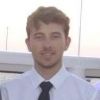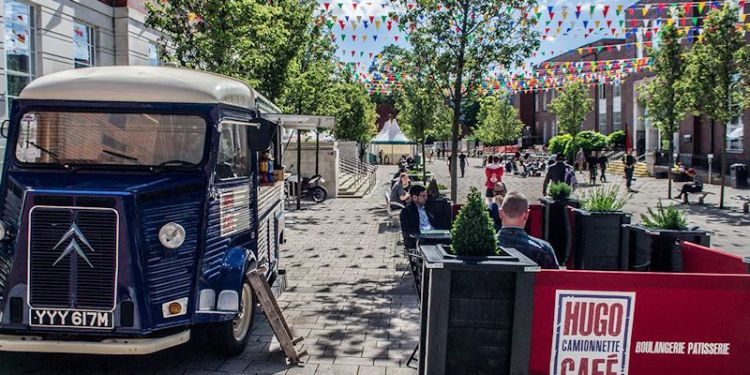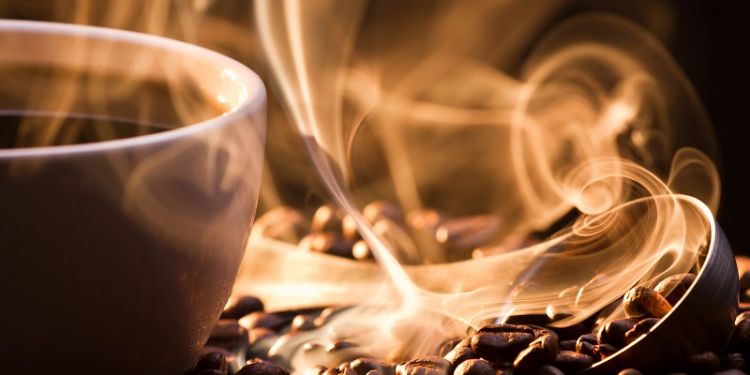
Luke Acton
- Course: Natural Sciences MNatSc (Industrial)
- Year of graduation: 2020
- Job title: Trainee Clinical Scientist
- Company: Lancashire Teaching Hospitals NHS Trust
- LinkedIn: https://www.linkedin.com/in/luke-acton-20149014b/
Luke graduated from the University of Leeds in 2020 with an undergraduate degree in Natural Sciences. He undertook his year in industry and worked for Jacobs Douwe Egberts (JDE) as a R&D intern. Upon completing his degree, he is currently pursuing a career within the NHS and working as a Trainee Clinical Scientist for the Lancashire Teaching Hospitals NHS Trust.
Undergraduate life at Leeds
Luke was torn between physics and biology so when he found out about Natural Sciences (where you can take both subjects), he jumped at the chance. He said, “Over the course of my degree I heard more and more about how in-demand multidisciplinary scientists are becoming. Entire fields are becoming so advanced that we are starting to appreciate how to link them together, for example, in bioinformatics. And graduating with the knowledge of more than one science discipline is not only great for the CV but allows you to view tasks from different angles. It has helped me untold amounts during my career and often gave me an edge over single disciplines.
The hands-on practical lab sessions offered during my studies were always so engaging.
I was originally drawn to Leeds because of the campus and the buzz that surrounded it. Leeds is a great city and that is supplemented so well by a university currently investing so much into new facilities and buildings. I felt like there wasn’t a single day something new was being added to campus. The Student Union has been voted one of the best in the UK before and I completely agree, the societies and events held there are great and I have really fond memories.

I think the best aspect of the course has been the breadth of research projects offered to undergraduate students. I took weeks to decide my final project and had an incredible time completing it, during which my research group went above and beyond in supporting my work.
The hands-on practical lab sessions offered during my studies were always so engaging. As a Natural Sciences student it can sometimes be difficult to feel fully integrated due to only being present for sections of the full course but the involvement provided by labs always made these feelings baseless.”
I think the best aspect of the course has been the breadth of research projects offered to undergraduate students.
Year in Industry
Having completed three years of university, Luke felt that he could really benefit from experience applying what he had learnt, so he decided to undertake a placement year. He also wanted to develop his professional skills as well as his academic skills and felt the best way to do this was gaining exposure to the R&D carried out in the industry.
For his placement year, he worked for Jacobs Douwe Egberts (JDE), based in Utrecht in the Netherlands who specialise in coffee. The company has a huge R&D department devoted to roasting and tasting coffee. Luke joked, “I must have drank a lifetime equivalent amount of coffee in the year that I was there!”

Knowledge sharing meetings were pretty regular occurrences, especially since the work was being conducted in the Netherlands and England, and they were great ways to meet colleagues and learn about new developments.
“My role was as an R&D intern working on developing new ways of roasting coffee to be trialled as new products. Each intern had a research project with the majority of each day free to spend working on it. Sometimes a colleague would need a hand on their project, which was a great way to gain extra insight.
Knowledge sharing meetings were pretty regular occurrences, especially since the work was being conducted in the Netherlands and England, and they were great ways to meet colleagues and learn about new developments. JDE also ran a student charity initiative where the intern intake for that year would work at raising a target amount for a chosen charity, in our case Macmillan Cancer Support. A hour or two of each week was spent organising and running events to generate funds, and in the end a total of £18,000 was raised in our year alone.
My placement year taught me so much about life in the work place. It developed my business skills such as networking, hosting meetings, and research in a corporate setting, all things that university life doesn’t quite encompass. Sometimes it isn’t just about how to do the research, but what to do with it after and how to present it, two things my placement taught me well.
The main learning point for me was how to communicate with people from different academic backgrounds. The research department was full of food scientists, engineers, and solicitors, some trained up to PhD level and then every qualification in between. Working with such a mix for a year really improved my communication skills, especially when delivering technical information to a wide range of backgrounds.
The main learning point for me was how to communicate with people from different academic backgrounds. Working with such a mix for a year really improved my communication skills, especially when delivering technical information to a wide range of backgrounds.
Career in the NHS
Luke’s plans to travel were put on hold by the pandemic so he jumped straight into work. He said, “I’ve always wanted a career within the NHS and started working with The Royal Wolverhampton NHS Trust in their New Cross Hospital microbiology lab soon after graduating. I then moved on to become a Clinical Support Worker with Sheffield Teaching Hospitals NHS Trust. The experience from these two jobs was enough to support my application for the Scientist Training Programme (STP) which I’m on for the next three years.
I’m based between Lancashire NHS Trust and the Christie Hospital in Manchester as a Trainee Clinical Scientist specialising in Medical Physics and Radiotherapy. Radiotherapy is one of the main techniques used in cancer treatment (the others being surgery, chemotherapy, hormone therapy, and, more recently, immunotherapy) which involves treating cancer with high doses of targeted radiation.
On most days I can expect to perform machine calibration and quality checks, plan patient treatments of cancers with radiation, and work with doctors. It’s a really rewarding role, especially when patients return to hear their cancer is in remission.
As a trainee my day typically involves following, observing, and asking lots of questions! But each day can be hugely different to the last, keeping me on my toes (something I love about the job). On most days I can expect to perform machine calibration and quality checks (e.g., on linear accelerators, CT machines, MRI machines), plan patient treatments of cancers with radiation, and work with doctors to choose how best to treat a patient. It’s a really rewarding role, especially when patients return to hear their cancer is in remission.”
Advice
“Personally, the Natural Sciences course suited me perfectly. I still haven’t specialised in one subject and continue to work across physics and medicine, something which has been made much easier by the course. The University provided me with so much help and support when it comes to taking a year in industry and gaining a career at the end of your course.
I can’t recommend the city and University enough.
I felt completely at home at the University of Leeds and completely at home in Leeds. There is such a huge student presence that you’ll always find something going on that’s up your street. I can’t recommend the city and University enough and hope that, if you do choose Leeds, you have as good a 4 years as I did!”
Find out more
Discover more about our Undergraduate degree courses in the School of Chemistry.

